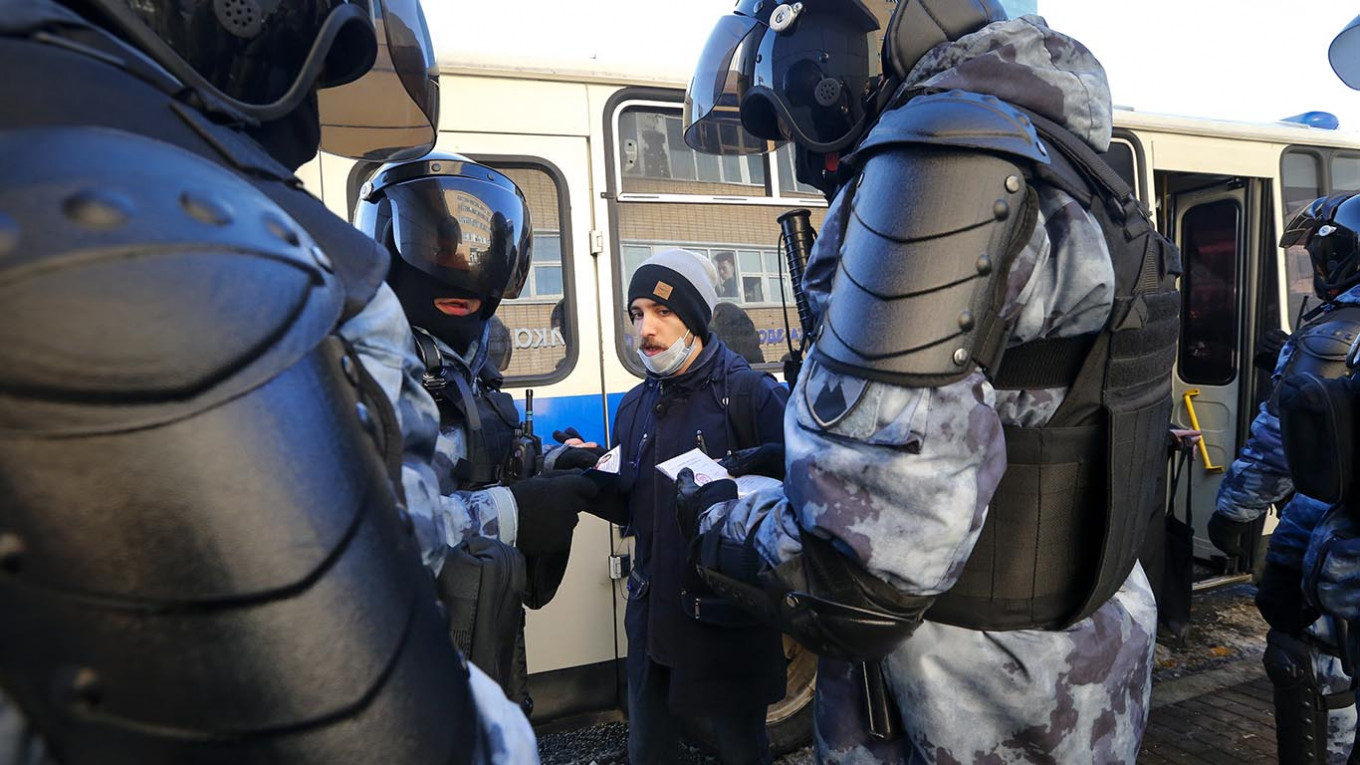
Russia is revoking residence permits and deporting, often informally and without written notice, foreign nationals for participating in recent political protests, the Meduza news website reported Thursday.
The outlet said it spoke with four citizens of post-Soviet republics who faced deportation orders after attending demonstrations in support of Kremlin critic Alexei Navalny and the opposition in neighboring Belarus.
“There are no papers on hand. They just let you know that you have to disappear,” said Lana Savanovich, an informal Belarusian diaspora leader who took part in pickets outside the Belarus Embassy in Moscow last summer.
“You can stay, but then be ready for anything,” Savanovich, who said immigration authorities rejected her paperwork based on her classification as a picket organizer, told Meduza.
“I was sure that since I wasn’t in Belarus, but in Russia, that some kind of law and order was observed here.”
Fellow Belarusian Ruslan Khazin, 50, said plainclothes officers interrogated him at his St. Petersburg workplace about his links with the opposition in Belarus.
“They said pack your bags, go to Belarus and revolt there,” Khazin was quoted as saying, adding that he is yet to receive a written rejection of his residence permit application.
Meduza reported that both have since relocated to Poland, which made it easier for Belarusians to obtain visas in the wake of mass anti-government protests in their home country that were met with a violent crackdown.
Moldovan citizen Mark Chebotar, 22, and Kyrgyz passport holder Denis Adonyev, 32, were among the 12,000 protesters who were detained during mass nationwide rallies in support of Navalny in January and February.
Both lived in Russia for about a decade but had their permanent residence cards revoked and were slapped with five-year and 40-year deportation orders following the protests, respectively.
“I understood that I could be deported but I realized that I don’t want to be afraid,” Chebotar said of his decision to attend the protests.
Adonyev and Chebotar said they plan to appeal their deportation orders through Russian courts and, if this fails, turn to the European Court of Human Rights on accusations that Russia is separating them from their families.